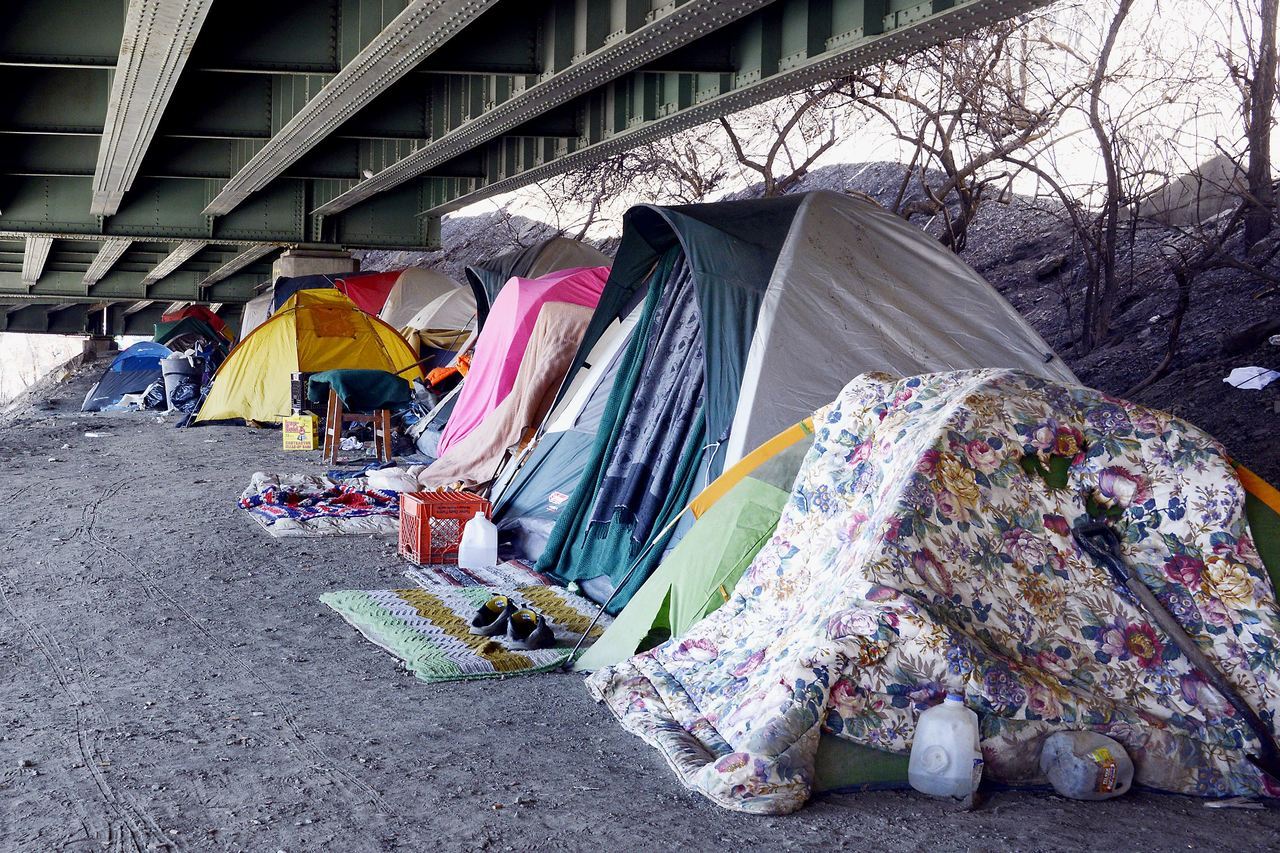This past Wednesday, the Los Angeles City Council’s homelessness committee suggested the adjustment of an ordinance which prohibits the homeless from sleeping or sitting on sidewalks. Now, the committee is urging city council to instead put into effect a law that is even more specifically tailored, yet remains in compliance with a recent federal court decision.
That ordinance, Municipal Code (L.A.M.C.) section 41.18, which has been colloquially dubbed the “sit-lie” law, would make it a criminal offense to lie, sleep, or sit on a public sidewalk within LA city limits. It was, at one point, the subject of a serious lawsuit, Jones v. Los Angeles, which was eventually settled back in 2007. Under that settlement, the city is legally restricted insofar as when and why they are able to enforce the law.
The newly proposed amended law offers a long list of particular conditions under which placement upon a sidewalk could be forcibly banned. These include occupying spaces within ten feet of a building entrance or driveway, or within five hundred feet of schools and parks. The city attorney’s office and committee members are suggesting the alteration so as to shift L.A.’s municipal code closer to a recent federal ruling which significantly limits how cities are able to enforce stringent anti-loitering ordinances. In a case known as Martin V. Boise, the 9th Circuit Court of Appeals tanked a Boise, Idaho law that banned individuals from sleeping on any public space.
Of that decision, Judge Marsha S. Berzon wrote: “As long as there is no option of sleeping indoors, the government cannot criminalize indigent, homeless people for sleeping outdoors, on public property, on the false premise they had a choice in the matter.” In this case, the city of Boise had no available shelter beds for the plaintiffs. Indeed, L.A.M.C. line 41.18(d) is practically the same as the Boise law which was struck down. The law reads: “No person shall sit, lie or sleep in or upon any street, sidewalk or other public way.” At the committee meeting, a presentation was delivered on the recommended changes, suggesting that the existing law was outdated due to the rapid increase of the homeless population, which has greatly outpaced the resources available to them.
Currently, there are over 27,000 unsheltered homeless people in Los Angeles, in comparison to a meager 8,100 open shelter beds. Additionally, fifty percent of those beds are specifically reserved for families, leaving only 4,000 beds for individual adults.
As a result, thousands are forced to live on the side-walks and tent encampments which have inundated the city at an alarming rate. In reaction to this crisis, the Homelessness and Poverty Committee voted 3-0 in favor of rewriting the ordinance. Now, the list of recommended prohibitions would include banning the homeless from sitting or lying within five hundred feet of a homeless shelter that’s opened since January 2018, in any way that violates wheelchair entrances or bike paths, in or around any tunnel or pedestrian walkway that is along a school route, on any land that contains a “no trespassing sign,” and, most nebulously, on “crowded sidewalk areas” near “large venues.”
Additionally, the proposed law would also make it illegal to “follow or speak to a person in a manner that could cause them to fear for their safety or loss of property,” a definition which seems pointedly subjective. Critics have also noted that the amendment would make it much more difficult for the homeless to access public restrooms and facilities. So, with these more stringent rules potentially coming into effect, where are the homeless able to lie, sit, and sleep? Technically, they would still be permitted to do so on sidewalks in residential or commercial areas, so long as they are not contradicting any of the other qualifications. Homelessness committee members have urged the city attorney’s office to draft a law based on its response recommendations. This proposal would ultimately need to be considered and voted upon by the entirety of the city council before entering law. But with the homelessness crisis in full bloom, it unfortunately seems only a matter of time before such a legal crack-down does become a reality.
Written by: Dash Finley

